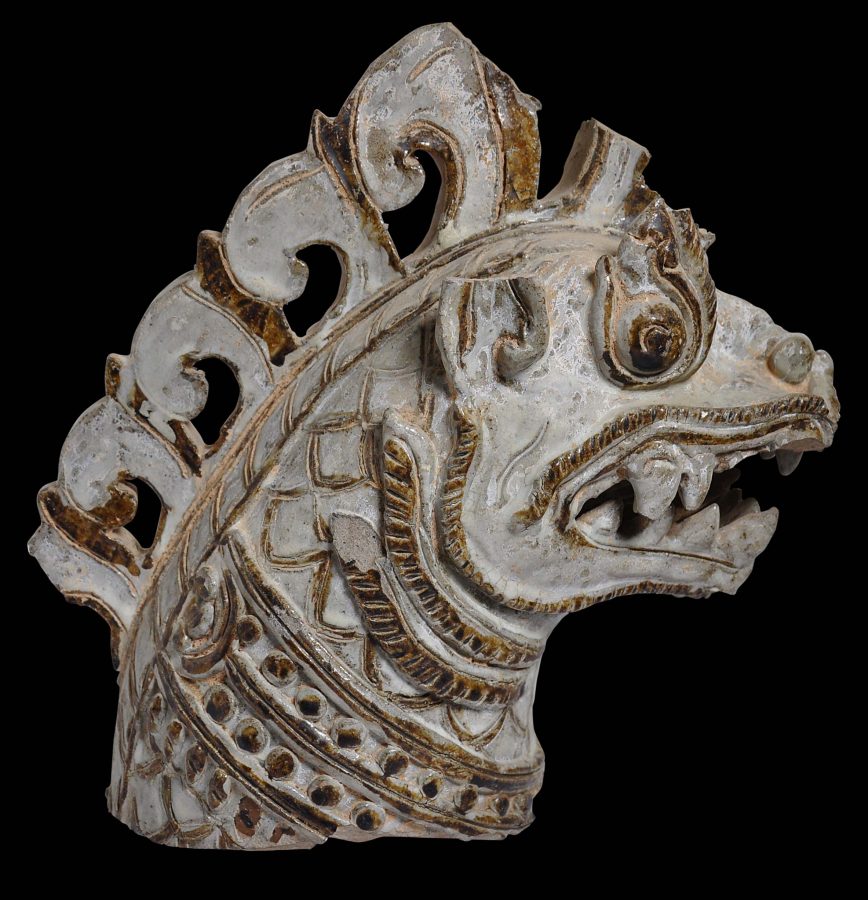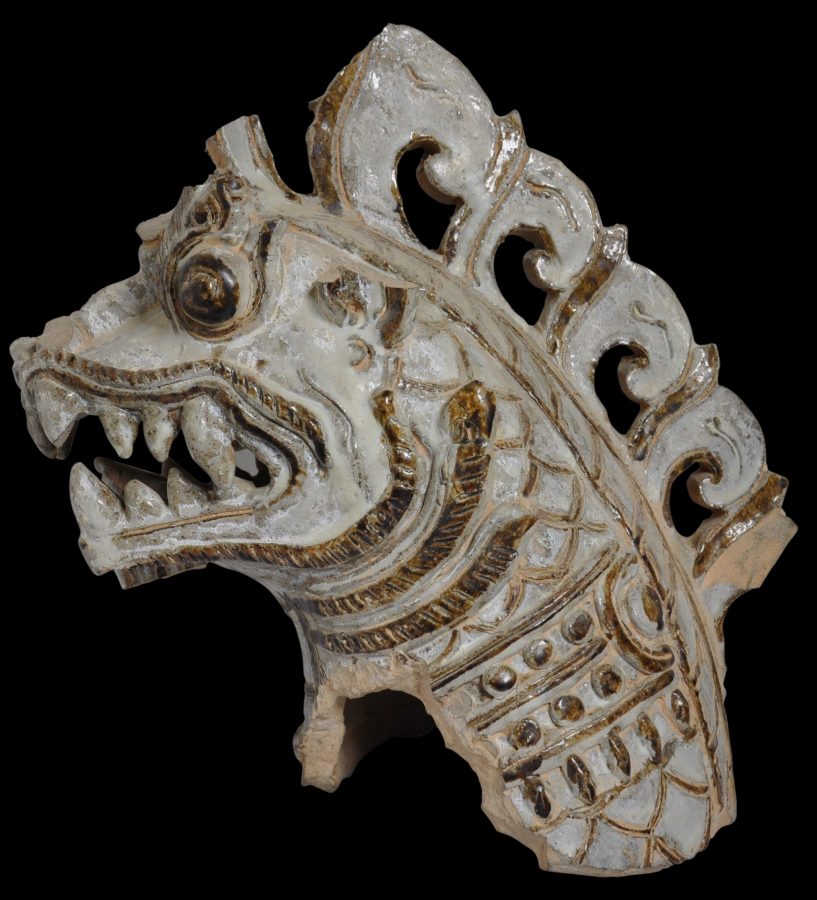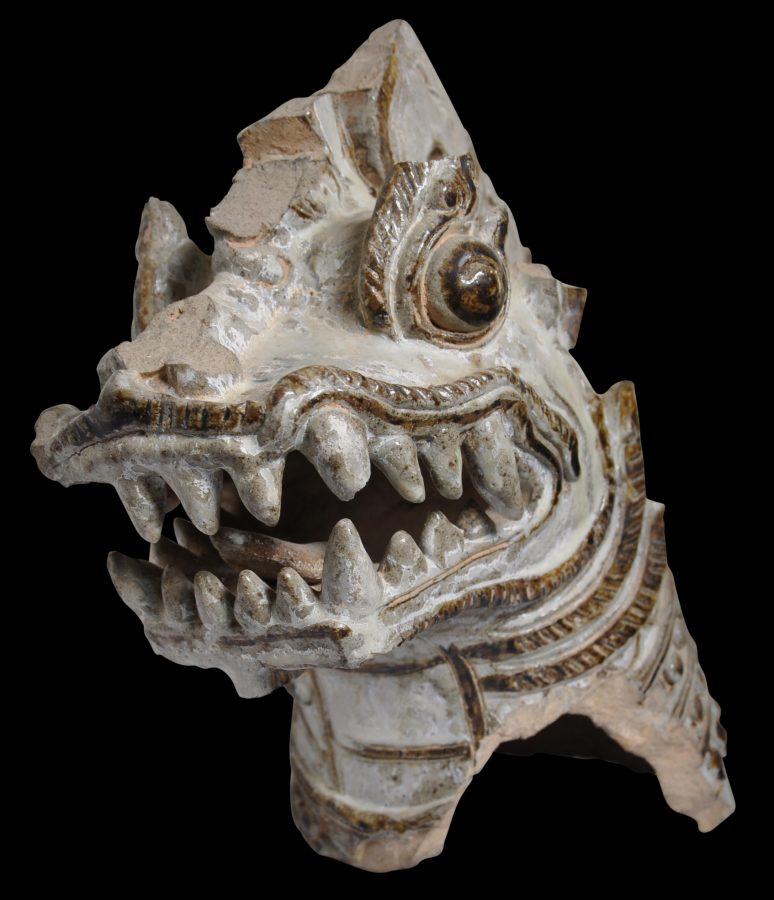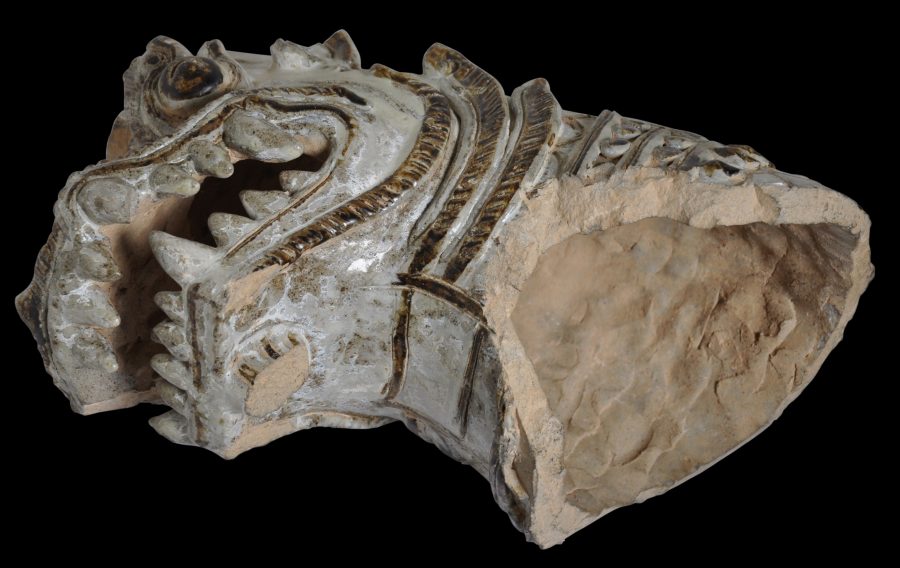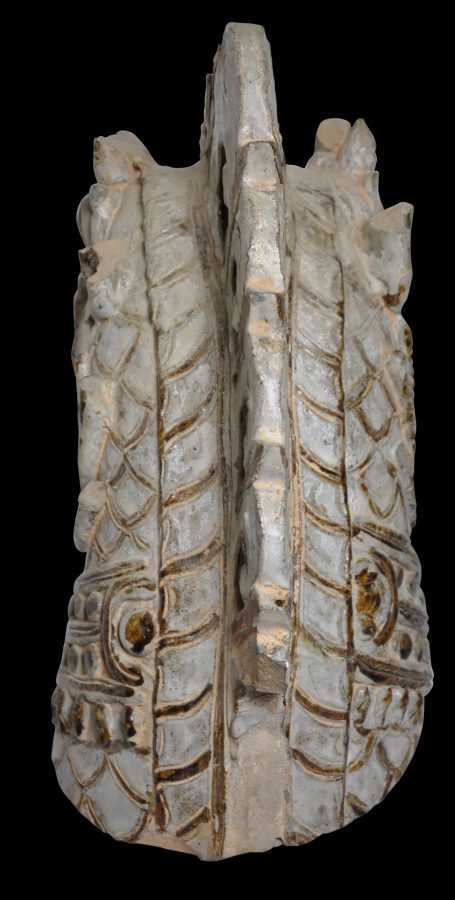Enquiry about object: 4686
Terracotta Makara Roof Tile Finial Fragment
Thailand Sukhothai Period, 14th-15th century
height: 30.5cm, length: 28cm, width: 17cm
Provenance
private collection, UK
This underglaze-brown, hollow roof tile fragment is in the form of a makara. The face is particularly expressive with a mouth that is agape and full of teeth; a fleshy tongue that is flicked up; bulging, wild eyes; and a superb, pierced mane. The neck is decorated with bands of dots and scales.
Ordination halls (ubosot) and assembly halls (wihan) generally were constructed of wood during the Sukhothai period but with such glazed terracotta or stoneware elements. As these buildings deteriorated or were replaced, the terracotta ornaments survived and thus became available.
Most probably the example here was made at the kilns in Sukhothai or Si Satchanalai. (The two sites competed with one another but the Sukhothai kilns commenced operations slightly after those at Si Satchanalai.
It is sculptural and free-standing.
Several teeth and part of the mane is broken away, as is what might have meant to be a small beard beneath the chin. But this is typical of surviving examples unless they have been restored. But the condition is stable, there are no repairs, cracks or other significant losses. It is a particularly attractive example.
See Brown (2009, p. 59), Rooney (2013) and Richards (1995, p. 69) for related examples.
References
Brown, R., The Ceramics of South-East Asia: Their Dating and Identification, second edition, Art Media Resources 1988.
Brown, R., Southeast Asian Ceramics Museum, Bangkok University, Bangkok University Press, 2009.
Guy, J., Thai Ceramics: The James and Elaine Connell Collection, Asian Art Museum of San Francisco/Oxford University Press, 1993.
Richards, D., South-East Asian Ceramics: Thai, Vietnamese, and Khmer – From the Collection of the Art Gallery of South Australia, Oxford University Press, 1995.
Rooney, D., Ceramics of Seduction: Glazed Wares from Southeast Asia, River Books, 2013.


